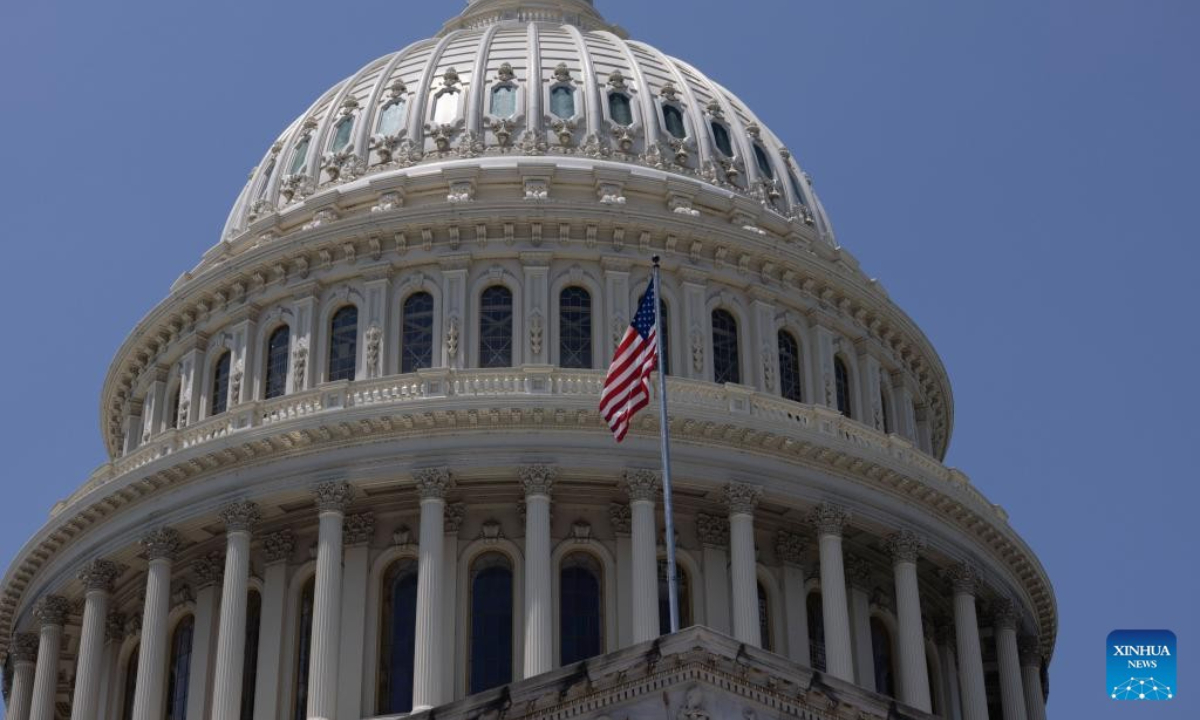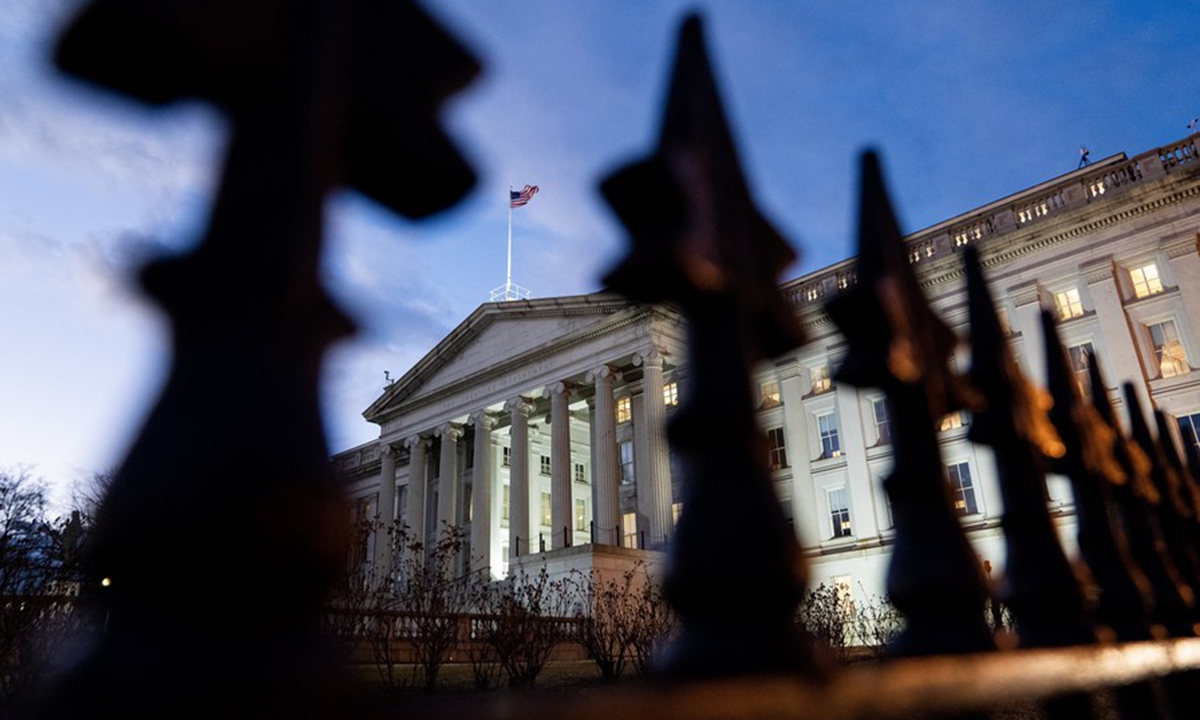
US debt ceiling impasse and a default’s impact on Malaysia remains a concern
US debt issue may affect global demand
PETALING JAYA: With the United States currently being embroiled in a debate as to whether it should raise its debt ceiling before the June 1 deadline, concerns over the impact on Malaysia of the world’s largest economy defaulting on its borrowings were understandably raised among certain quarters.
This is all the more relevant when one considers the fact that the United States is Malaysia’s third-largest trading partner, with World’s Top Exports reporting that Singapore, China, the United States, Japan and Hong Kong contributing to more than half of Malaysia’s export revenue – 51.8% to be exact – in 2022.
The website also revealed that the United States accounted for US$38bil (RM173.5bil) or 10.8% of Malaysia’s export income in 2021, again behind only Singapore at 15% and China 13.6%.
Thus, it is not difficult to understand the oft-used adage, “When the US sneezes, the world catches a cold”, including of course, Malaysia.
Chief economist for HSBC Global Research Frederic Neumann had remarked on Monday that should the debt ceiling issue be drawn out of proportion, it could lead to a depression of US growth, and adversely impact Malaysian exports stateside, possibly even reducing global demand because of an increase in financial uncertainty.
The current debt ceiling is known to be at US$31.4 trillion (RM143.4 trillion), and reports from yesterday indicated that a resolution could be imminent.
Shedding more light on the matter, Centre for Market Education chief executive Dr Carmelo Ferlito said the debt ceiling can be raised again, but only if it can be voted through the House of Representatives, which has a Republican majority.
“The Republicans are trying to use the deadline to pressure President Joe Biden to agree to spending cuts.
“On April 26, the House approved a bill to raise the debt limit by US$1.5 trillion (RM6.85 trillion), but only on the condition that spending would be cut to 2022 levels and then capped at 1% growth per year,” he told StarBiz.
A simple analogy to illustrate the ceiling standoff is the case of a parent providing a teenage child with a credit card.
If the teenager exceeds the spending limit, and asks the parent for an extension of credit, it is only natural for the parent to go over the spending habits of the child before deciding to provide more credit, which has to be repaid.
If the ceiling is not raised and the US officially defaults, Ferlito said the consequences for other economies – including Malaysia – should be looked at more in the light of a general financial turmoil that the default could cause rather than the more immediate link with American bonds that firms or governments may have.
“We do not see direct repercussions on Malaysia; rather, we foresee indirect effects in case of (a US) default, coming from a global financial turmoil,
He explained: “We do not see direct repercussions on Malaysia; rather, we foresee indirect effects in case of (a US) default, coming from a global financial turmoil.
“If there is a default, which is doubtful, there will be a financial shock and the entity of such a shock will determine how much it would impact Malaysia.”
He elaborated that a potential default and its effect on an exporting country like Malaysia can be seen as two separate phenomena, a sovereign debt default; and the business relationship between private entities.
Ferlito added: “Even if the US defaults, private companies can still transact independently from the scale of the mutual business relationship. What we have to fear more are the indirect consequences.”
Economists at Coface Services South Asia-Pacific Pte Ltd, Bernard Aw and Eve Barre, believe a breach in the debt ceiling would result in outlay cuts currently funded with borrowing while the US dollar would weaken, elevating yields.
“Such a default would also have an impact on global financial markets, which rely on the dollar as the world’s primary reserve currency and as a safe asset.
“For Asian exporters, a weakening of the dollar against their currencies would dampen their competitiveness, including for Malaysia as the United States represents its third-largest export market up to 2022,” they told StarBiz.
Although acknowledging that a negative impact on the US economy from reducing public spending would depend on the extent of those cuts, they pointed out that if an agreement leads to deep spending decreases, economic growth for the United States could be slower than the already sluggish 1.2% that Coface is forecasting for 2023.
Aw and Barre opined: “This would have a direct impact on Malaysia by reducing US demand for Malaysian goods but also on foreign investment.
“In 2021, the United States was the first source of foreign direct investment flows to Malaysia, accounting for roughly a third of the total.”
On the flipside, they projected that sharp cuts in US public spending are unlikely to be approved by the Senate, as it is controlled by the Democrats.
Meanwhile, approaching the problem from an investment perspective, chief investment officer for Tradeview Capital, Nixon Wong, echoed the economic view that a US default would have global ripple effects, including on the FBM KLCI.
“A default on US federal debt would disrupt imports of electronics and manufactured goods from Chinese factories to the United States, resulting in slower growth of orders in the entire supply chain that includes Malaysia.
“Reduced spending in the United States would lead to slower aggregate demand and import growth globally,” he said.
The effect could likely be seen on export-oriented companies on the local bourse, he said, including manufacturers of electrical and electronic and rubber products, as well as in the producers of metal, optical and scientific equipment.
He added that although Malaysia’s trade volume with the United States may be smaller compared to China, the repercussions from reduced US spending would still impact Malaysia’s exports, whether directly or indirectly.
History has shown that American political leaders have always managed to raise the debt limit before it becomes a crisis, and it is likely that this pattern will continue, Wong said.
“While there are debates and partisan divisions in Congress, it is expected that Republicans will seek spending cuts before supporting the raising of the debt ceiling.
“After all, the main agenda is to prevent a catastrophic event or severe fallout in the United States and global financial markets,” he observed.
By KEITH HIEW
US urged against passing risks to world amid growing chance of a US default
A Chinese official on Tuesday warned of the significant spillover effect of US domestic policies and urged Washington to avoid passing on domestic risks to the rest of the world just to protect its own interests. The comment came after US leaders failed to reach a deal on the debt ceiling issue, with the deadline to avert the first-ever default approaching rapidly.
Related posts:
Will US debt ceiling deadlock push capital to yuan market?
Should we be worried about debt?
US the biggest obstructer of global recovery in 2023, Ballooning US debt a ticking time bomb for world economy

Washington’s unsustainable deficit hangs over global economy
The strong dollar should not become a sharp blade to cut the world, THE NEED FOR BRETTON WOODS III
Global de-dollarisation fast underway; US Printed More Money in One Month Than in Two Centuries, US$ is fast becoming Banana Currency

%20default,%20coming%20from%20a%20global%20financial%20turmoil.jpg)






